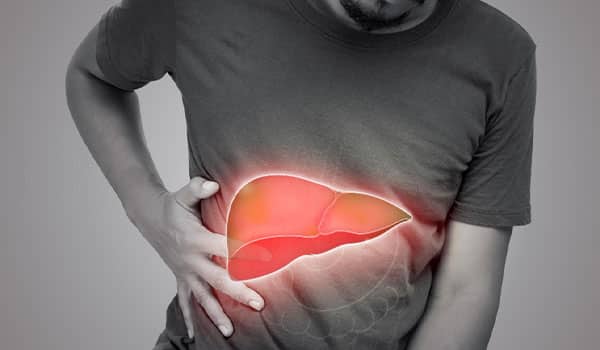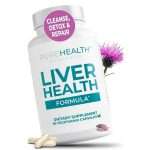Alcohol abuse can have detrimental effects on the liver. When you consume alcohol, it is processed by the liver, which works hard to break it down and eliminate it from the body.
However, excessive and prolonged alcohol consumption can overwhelm the liver, leading to liver damage. This damage can range from inflammation and fatty liver to more severe conditions such as alcoholic hepatitis and cirrhosis.
Quick Summary
Decreased fatigue, improved digestion, reduced jaundice, and enhanced mental clarity are potential signs of the liver healing from alcohol damage.
Common Signs of Liver Damage from Alcohol
Identifying the signs of liver damage caused by alcohol is crucial in determining whether your liver is healing. While the symptoms can vary from person to person, there are some common indicators to look out for. One of the primary signs is jaundice, which is characterized by yellowing of the skin and eyes.
Jaundice occurs when the liver is unable to effectively process bilirubin, a yellow pigment produced during the breakdown of red blood cells.
Another common symptom of liver damage is abdominal pain or discomfort. This can range from a dull ache to sharp and intense pain. Additionally, you might experience fatigue, weakness, and a general feeling of being unwell. These symptoms can be a result of the liver’s reduced ability to filter toxins from the body.
The Liver’s Natural Healing Process
The liver has an incredible ability to heal itself, given the right conditions. Once you’ve made the decision to cut back or quit drinking alcohol, your liver can begin its recovery process. The first stage of healing is reducing inflammation. As the liver heals, you may notice improvements in various aspects of your health.
One of the first signs of healing is increased energy levels. You may find that you have more stamina and vitality throughout the day. Improved digestion is another positive change that you may experience. Your body’s ability to absorb nutrients and eliminate waste can improve as the liver heals.
Lifestyle Changes that Promote Liver Healing
While the liver has the capacity to heal on its own, certain lifestyle changes can expedite the process. The most crucial step is to abstain from alcohol completely. This allows the liver to focus on repairing the damage without the additional burden of processing alcohol. Regular exercise can also play a significant role in liver healing by improving blood flow and aiding in detoxification.
In addition to exercise, maintaining a healthy weight is essential for liver health. Obesity can contribute to fatty liver disease, which can further exacerbate liver damage. Eating a balanced diet rich in fruits, vegetables, whole grains, lean proteins, and healthy fats can provide the necessary nutrients for liver healing.
The Role of Nutrition in Liver Recovery
Proper nutrition plays a vital role in supporting the liver’s healing process. Certain foods can provide specific nutrients that aid in liver repair. For example, foods rich in antioxidants, such as berries, leafy greens, and cruciferous vegetables, can help reduce inflammation and protect liver cells from further damage.
Additionally, consuming foods high in fiber, such as whole grains and legumes, can support the liver’s detoxification process by promoting regular bowel movements. Avoiding processed foods, saturated fats, and excessive sugar is also crucial for liver health.
Medical Treatments and Therapies for Liver Healing
In some cases, medical interventions may be necessary to support liver healing. If you have advanced liver damage, your healthcare provider may recommend specific treatments or therapies. These may include medications to reduce inflammation, improve liver function, or manage complications associated with liver disease.
In severe cases, a liver transplant may be the only option. A transplant involves replacing a diseased liver with a healthy one from a donor. It is essential to work closely with your healthcare team to determine the best course of action for your specific situation.
Monitoring Your Liver Health
Regular monitoring of your liver health is crucial, especially if you have a history of alcohol abuse. Your healthcare provider can perform various tests to assess liver function and detect any signs of ongoing damage. These tests may include blood tests to measure liver enzymes, imaging tests such as ultrasound or MRI, and liver biopsy to evaluate the extent of liver damage.
It’s important to stay proactive in managing your liver health by attending regular check-ups and following your healthcare provider’s recommendations. Early detection of any potential issues can significantly improve the chances of successful treatment and liver healing.
Support Groups and Resources for Individuals Healing from Alcohol-Related Liver Damage
Embarking on a journey to heal your liver from alcohol-related damage can be challenging, both physically and emotionally. Fortunately, there are numerous support groups and resources available to provide guidance and encouragement.
Support groups can offer a sense of community, where individuals can share their experiences, struggles, and triumphs. It can be immensely helpful to connect with others who are on a similar path to liver healing.
Additionally, there are online resources, books, and educational materials that provide valuable information about liver health, alcohol recovery, and lifestyle changes. These resources can equip you with the knowledge and tools necessary to make informed decisions and take control of your liver health.
Conclusion
Recognizing the signs that your liver is healing from alcohol is a positive indication that you’re on the right track towards improving your liver health. As your liver regenerates, you may notice improvements in energy levels, digestion, and overall well-being. Making lifestyle changes, such as abstaining from alcohol, adopting a healthy diet, and engaging in regular exercise, can further support liver healing.
Remember, everyone’s healing journey is unique, and it’s important to consult with your healthcare provider for personalized advice and guidance. By taking proactive steps and making positive choices, you can promote liver healing and embark on a path towards improved health and well-being.



